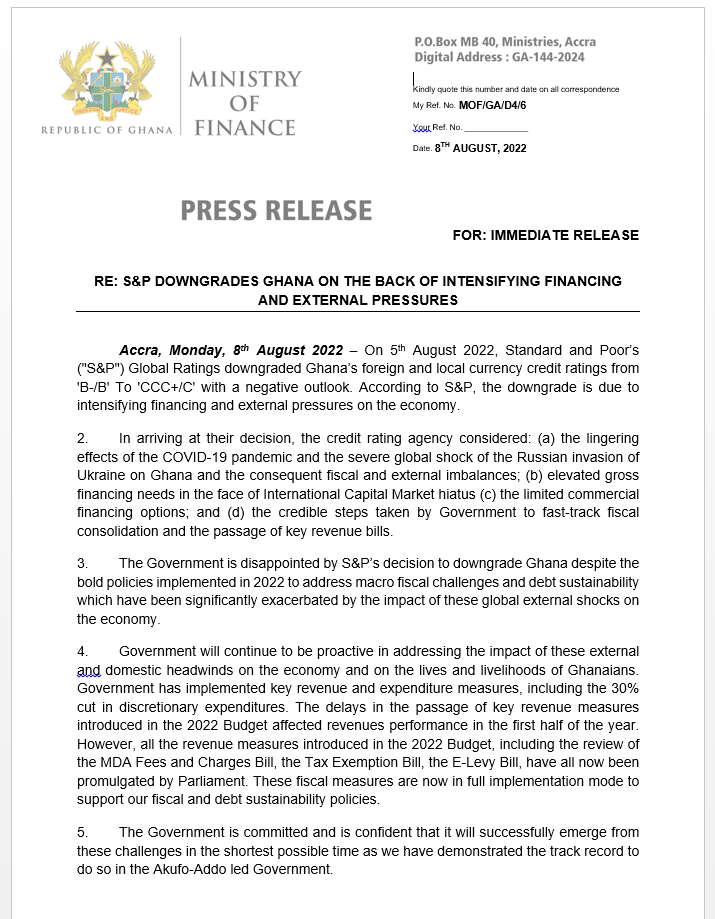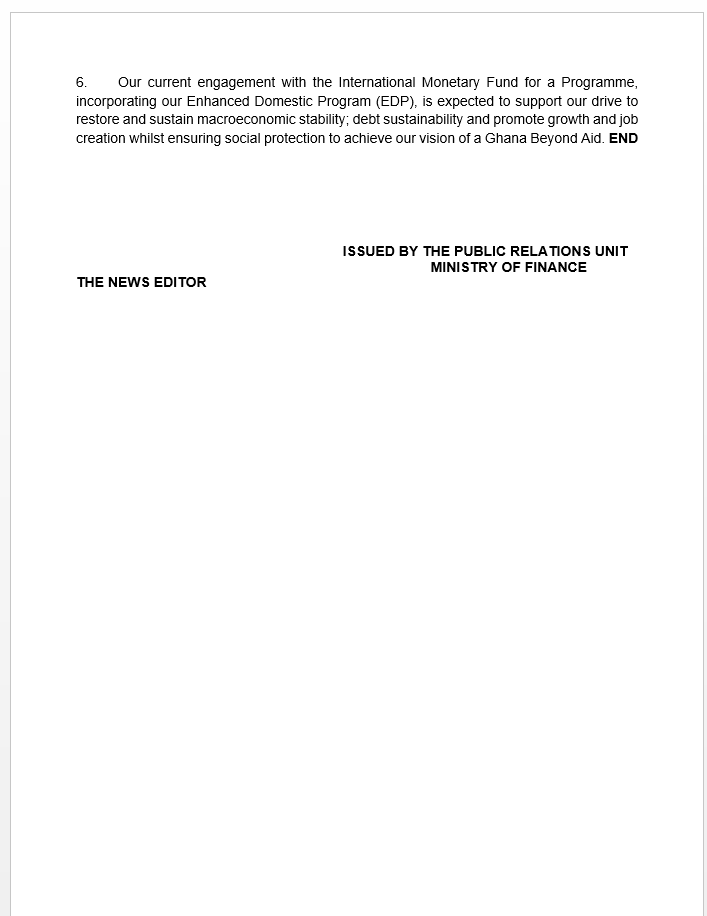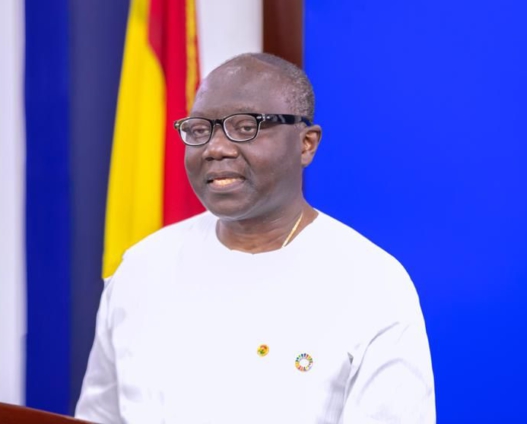The government has expressed disappointment by rating agency, S&P’s, decision to downgrade Ghana despite the bold policies implemented in the 2022 to address macro fiscal challenges and debt sustainability which have been significantly exacerbated by the impact of these global external shocks on the economy.
In a statement from the Finance Ministry, it said government will continue to be proactive in addressing the impact of these external and domestic headwinds on the economy and on the lives and livelihoods of Ghanaians.
“Government has implemented key revenue and expenditure measures, including the 30% cut in discretionary expenditures. The delays in the passage of key revenue measures introduced in the 2022 Budget affected revenues performance in the first half of the year. However, all the revenue measures introduced in the 2022 Budget, including the review of the MDA Fees and Charges Bill, the Tax Exemption Bill, the E-Levy Bill, have all now been promulgated by Parliament”.
“These fiscal measures are now in full implementation mode to support our fiscal and debt sustainability policies”, the statement explained.


Furthermore, it said the government is committed and is confident that it will successfully emerge from these challenges in the shortest possible time as “we have demonstrated the track record to do so in the Akufo-Addo led government”.
“Our current engagement with the International Monetary Fund for a programme, incorporating our Enhanced Domestic Program (EDP), is expected to support our drive to restore and sustain macroeconomic stability; debt sustainability and promote growth and job creation whilst ensuring social protection to achieve our vision of a Ghana Beyond Aid”, it concluded.
Standard and Poor’s ("S&P") Global Ratings on Friday August 5th, 2022 downgraded Ghana’s foreign and local currency credit ratings from 'B-/B' To 'CCC+/C' with a negative outlook.
According to S&P, the downgrade is due to intensifying financing and external pressures on the economy.
In arriving at its decision, the credit rating agency considered the lingering effects of the COVID-19 pandemic and the severe global shock of the Russian invasion of Ukraine on Ghana and the consequent fiscal and external imbalances; elevated gross financing needs in the face of International Capital Market hiatus; the limited commercial financing options and the credible steps taken by government to fast-track fiscal consolidation and the passage of key revenue bills.
Latest Stories
-
‘Truth prevails’ – Anas hails $18M US court victory against Kennedy Agyapong for defamation
3 hours -
FIFA supports massive transformation of Nigeria Technical Centre
4 hours -
‘Politicians cannot take media for granted’ – Anas declares after U.S. court victory over Kennedy Agyapong
4 hours -
Missing South African girl was wanted for her ‘eyes and skin’
5 hours -
NPP Minority will support Mahama’s wish to repeal L.I. 2462 – Abu Jinapor
5 hours -
Top US Supreme Court justice rebukes Trump’s call to impeach judge
5 hours -
US Court awards Anas $18m in defamation suit against Kennedy Agyapong, one other
5 hours -
Harry’s US visa records unsealed after drug claims
5 hours -
Federal judge halts USAID shutdown
5 hours -
Putin agrees to halt strikes on Ukraine energy targets for 30 days after call with Trump
6 hours -
Alexander Smith: Deception in uniform – Blue Water Guards launch is a smokescreen for gov’t inaction
6 hours -
We’ll constitute committee to audit permits issued by ex-Lands Minister – Murtala Muhammed
6 hours -
Amansie Rural Bank takes steps to empower artisans and SMEs in catchment communities
7 hours -
GAEC warns against land encroachment near nuclear facility
7 hours -
Repealing L.I. 2462 won’t prevent mining in forest reserves – Abu Jinapor cautions
7 hours

